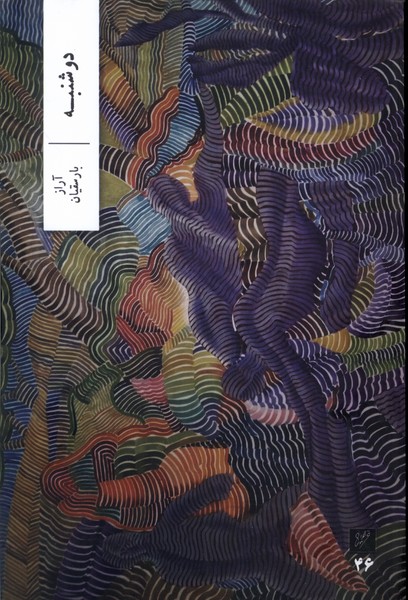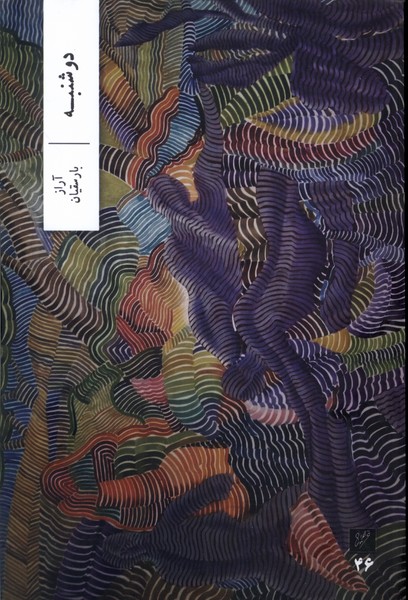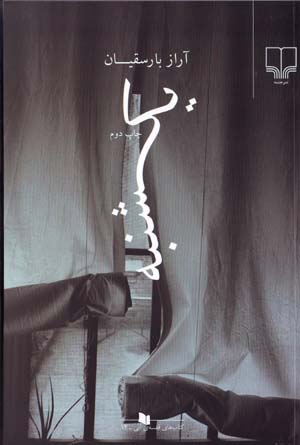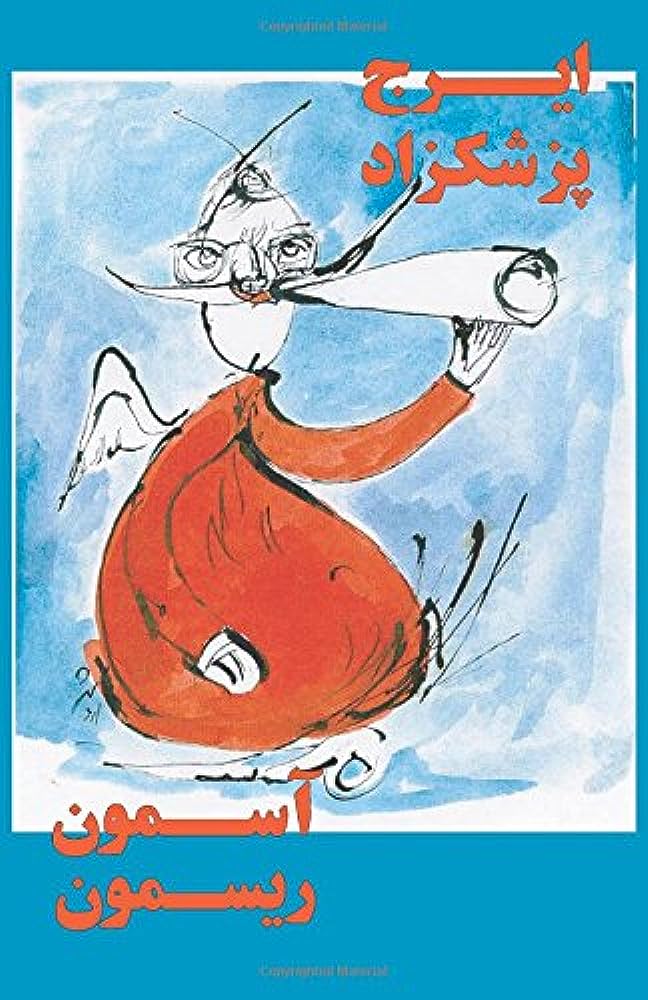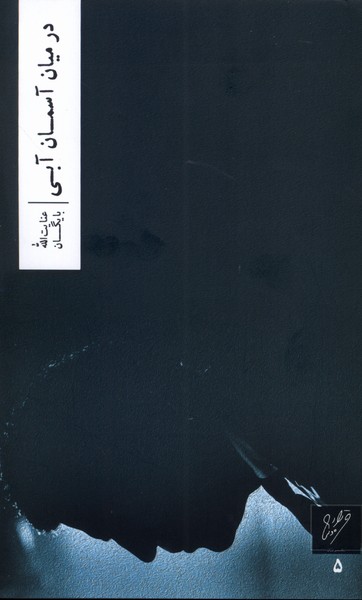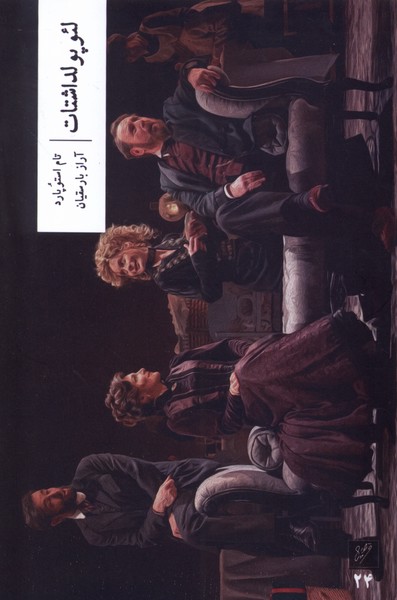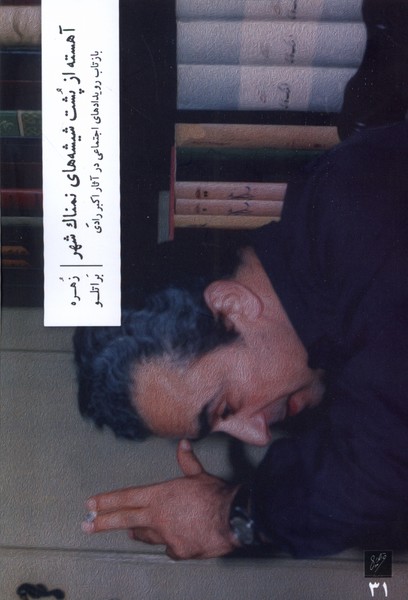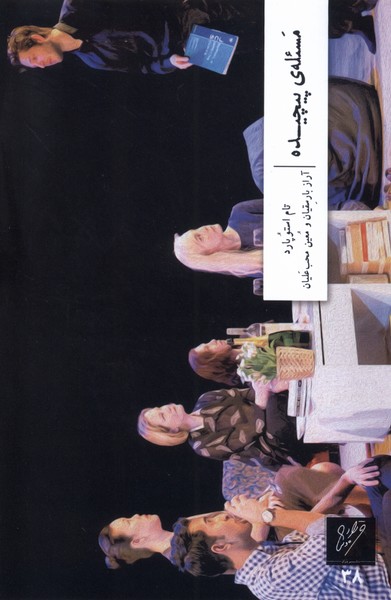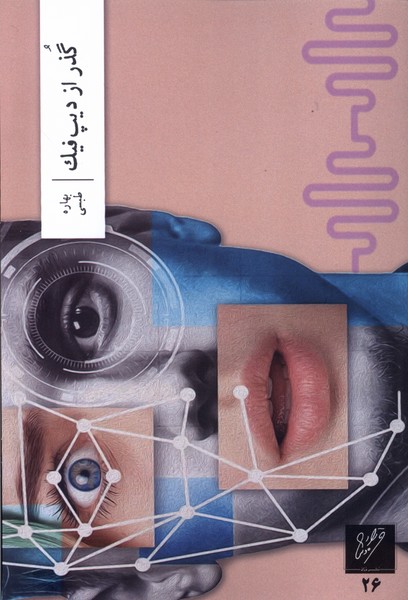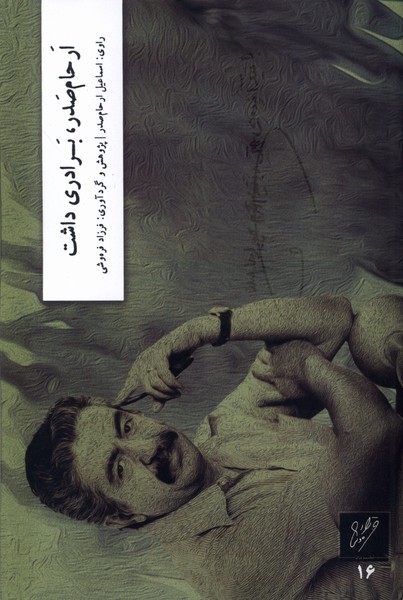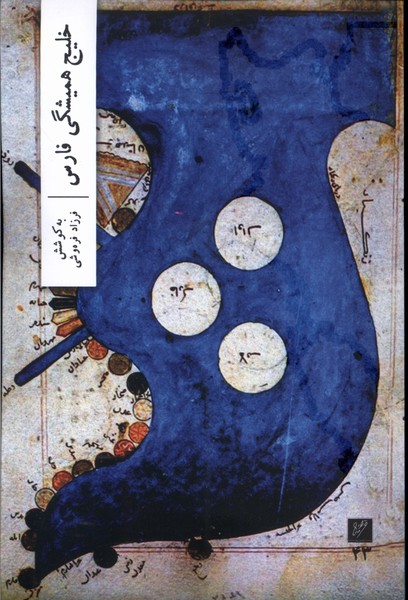دوشنبه فارسی 1403
Dushanbah
13٫59 €
اشتراکگذاری
Wishlist
"Monday" is a novel by Araz Barsaghian, which was published as a continuation of his previous novel "Yishneba". He decides to continue this series of novels, which is called The Days of the Week until it reaches Saturday. As its name suggests, the story of the novel "Monday" takes place on a Monday and starts from seven in the morning until midnight.
"Doshanbe" is the story of one day in the life of one of the characters in the novel "Yishneh", Barsaghian's previous novel. On this Monday, the daily life, life, job, and emotional conflicts of the main character are told in the form of a story. This novel can be placed in the category of urban novels, but it seems that Tehran is only summed up in Karim Khan Street, Vali Asr, and Revolution. This is something that some critics have pointed out. The city and writing about the city in the 20th century is one of the subjects of fiction literature, this type of literature represents the narrative of unstable urban life and the sense of loss. Loneliness and lack of social solidarity are important elements of urban literature. These elements can be seen to some extent and in a faint form in the novel "Monday".
The novel has a good beginning and end, which is one of its positive points. "Monday" is a collection of short stories that narrate 19 hours of the life of the novel's main character. The structure of the novel is based on these sub-narratives, and it cannot be considered a plot for it. However, some of these sub-plots are very interesting in themselves and maybe even a whole novel can be written based on them.
The presence of the author in "Monday" is bold and it can be said that it has somehow found a form of autobiography. The main character of the novel, like the author, is a translator and has literary concerns, and there are many references to literary works in this novel. The main character, Arby, is a writer and translator who lives with his father and sister Eileen. Arby wakes up, translates, and meets literary people, and his relationships with his family, his sister, his friend, and his ex-girlfriend are also narrated. The hero of the novel has a boring life similar to many people in the metropolis of Tehran and can be considered a symbol of urban people.
The narration of everyday life and loneliness of people in the heart of the city and with other people is a topic that is narrated both in the novel "Sunday" and in the novel "Monday". These two novels can be suitable options for those interested in urban novels.
more
«دوشنبه» رمانی از آراز بارسقیان است که در ادامۀ رمان قبلی او یعنی «یکشنبه» چاپ شده است. او تصمیم دارد این سری رمان را که با نام روزهای هفته است ادامه بدهد تا به شنبه برسد. داستان رمان «دوشنبه» همچنان که از نامش پیداست در یک روز دوشنبه اتفاق میافتد و از هفت صبح شروع میشود تا دوازده شب ادامه پیدا میکند.
«دوشنبه» در واقع داستان یک روز از زندگی یکی از شخصیتهای رمان «یکشنبه»، رمان قبلی بارسقیان، است. در این روز دوشنبه روزمرگیها، زندگی، شغل و درگیریهای عاطفی شخصیت اصلی در قالب یک داستان روایت میشوند. این رمان را میتوان در رده رمانهای شهری قرار داد، اما انگار تهران فقط در خیابان کریمخان و ولیعصر و انقلاب خلاصه شده است. این موضوعی است که برخی منتقدین به آن اشاره کردهاند. شهر و نوشتن در بارۀ شهر در قرن بیستم یکی از موضوعات ادبیات داستانی است، این نوع ادبیات، روایت زندگی ناپایدار شهری و حس گمشدگی را بازنمایی میکند. تنهایی و نبود همبستگی اجتماعی از عناصر مهم ادبیات شهری است. این عناصر را تا حدودی و به شکل کمرنگی در رمان «دوشنبه» نیز میتوان دید.
رمان شروع و پایان خوبی دارد که این از نکات مثبت آن است. «دوشنبه» مجموعهای از خردهروایتهایی است که ۱۹ ساعت از زندگی شخصیت اصلی رمان را روایت میکند. ساختار رمان بر اساس همین خردهروایتهاست و نمیتوان پیرنگی را برای آن در نظر گرفت. هرچند برخی از این خردهپیرنگها به خودیخود بسیار جذاب هستند و حتی شاید بتوان براساس آنها یک رمان کامل نوشت.
حضور مولف در «دوشنبه» پررنگ است و میتوان گفت، به نوعی شکلی از اتوبیوگرافی پیدا کرده است. شخصیت اصلی رمان نیز مانند نویسنده، مترجم است و دغدغههای ادبی دارد و ارجاعات زیادی به آثار ادبی نیز در این رمان وجود دارد. شخصیت اصلی، آربی، نویسنده و مترجمی است که با پدر و خواهرش آیلین زندگی میکند. آربی از خواب بیدار میشود، ترجمه میکند، به ملاقات ادبیاتیها میرود و ضمن آن روابطش با خانواده و خواهرش، دوستش و دوست دختر سابقش نیز روایت میشود. قهرمان رمان زندگی ملالآوری شبیه به بسیاری از آدمهای کلان شهر تهران دارد و میتوان او را نماد آدمهای شهرنشین دانست.
روایت روزمرگی و تنهایی آدمها در دل شهر و در کنار آدمهای دیگر موضوعی است که هم در رمان «یکشنبه» روایت میشود و هم در رمان «دوشنبه». این دو رمان میتوانند گزینههای مناسبی برای علاقمندان به رمانهای شهری باشند.
more

